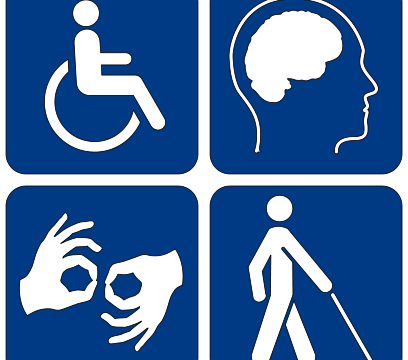Practice
Before the baby arrives, practice how to physically handle your baby as much as your disability will allow. Try using a bag of potatoes; a ten pound bag is similar in weight to a newborn baby and about the same size. Practice picking it up, putting it into the crib, changing diapers and any other things you might find difficult. Find ways to move the baby comfortably, without exacerbating your disability.

Be Prepared, Be Humble
If you’ve lived your life with a disability then you already know that people aren’t always respectful of your limitations. Discuss your situation with the anesthesiologist ahead of time, and determine a course of action to make the administration of pain medication comfortable. Also be very clear with your obstetrician; they need to alert your nurses in the hospital of your disability. If you are not treated respectfully, be polite and do not hesitate to inform your OB or the head nurse.
Advances in modern medicine have made delivering a healthy baby easier than ever. The same advances mean that there are opportunities for women with disabilities to have healthy pregnancies. Just remember, if you have a disability and are pregnant or want to conceive, that you are your own best advocate.
Thank-you for reading this post. Please leave your thoughts in the comment section below.
Rushby-Smith, Tim. “The Challenges of Disability and Pregnancy.” The Guardian. The Guardian, 22 10 2010. Web. 15 Oct 2011. <http://www.guardian.co.uk/society/2010/nov/23/challenges-disability-pregnancy>.
Neergaard, Lauran. “More Disabled Women are Having Children.” Pregnancy on msnbc.com. The Associated Press, 09 05 2011. Web. 15 Oct 2011. <http://www.msnbc.msn.com/id/42960995/ns/health-pregnancy/>.